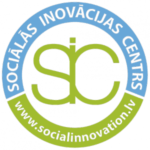Gamification Methods for Educational Management
Year of production: 2018
Image of games
Gamification Methods for Educational Management is a project that aims to develop gamification for non-formal education methodologies and instruments for young people aged 18-23.
The approach taken in the project is considered innovative in terms of the criteria taken into account in developing intellectual outputs, but also innovative in terms of the intellectual outputs (brand new board games and applications) – focused on the following aspects:
- Scaffolding – Learners need different levels of support depending on their competence. The educational concept of scaffolding is the application of tailored support to move the learner from their current level of learning to the next.
- Self-Determination Theory – Learners are motivated by psychological needs of competence, autonomy, and social relatedness through both external and internal factors. Components of the motivational theory of self-determination explain how gamification elements keep learners engaged.
- Distributed Content Delivery – Learners have better recall if learning content and tests are spaced out over time. A distributed approach to learning is where the learning content is spaced out over time and the learner is quizzed immediately after the content has been delivered. This reduces learner fatigue and leads to better recall.
The project “Gamification Methods for Educational Management” is funded by the European Commission’s Erasmus+ Programme.
Discover the tools developed by the project





